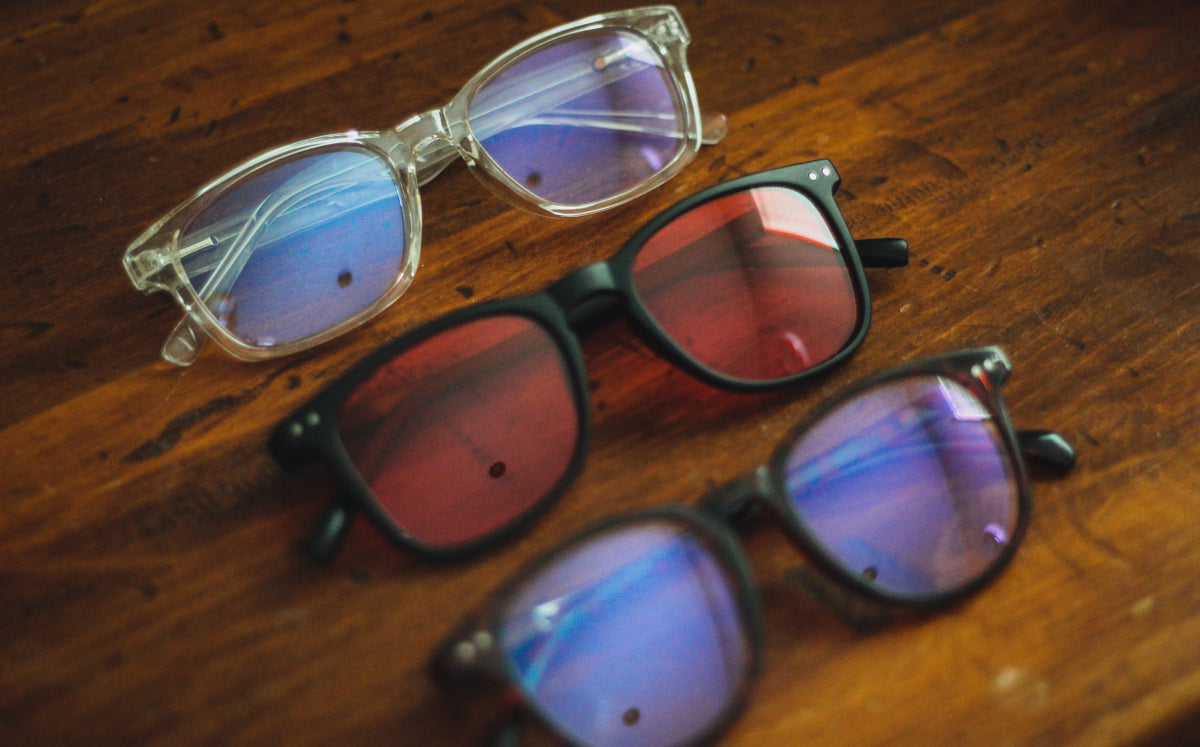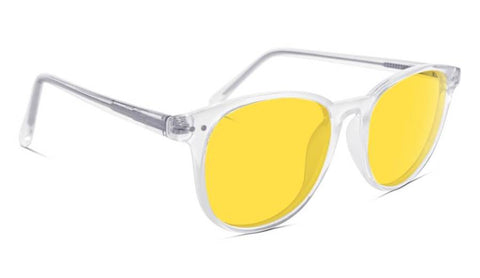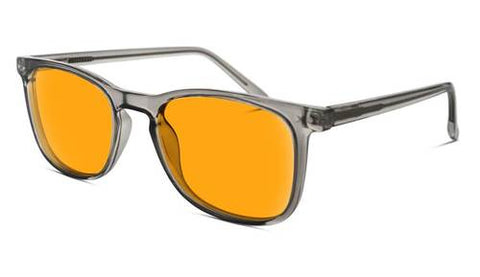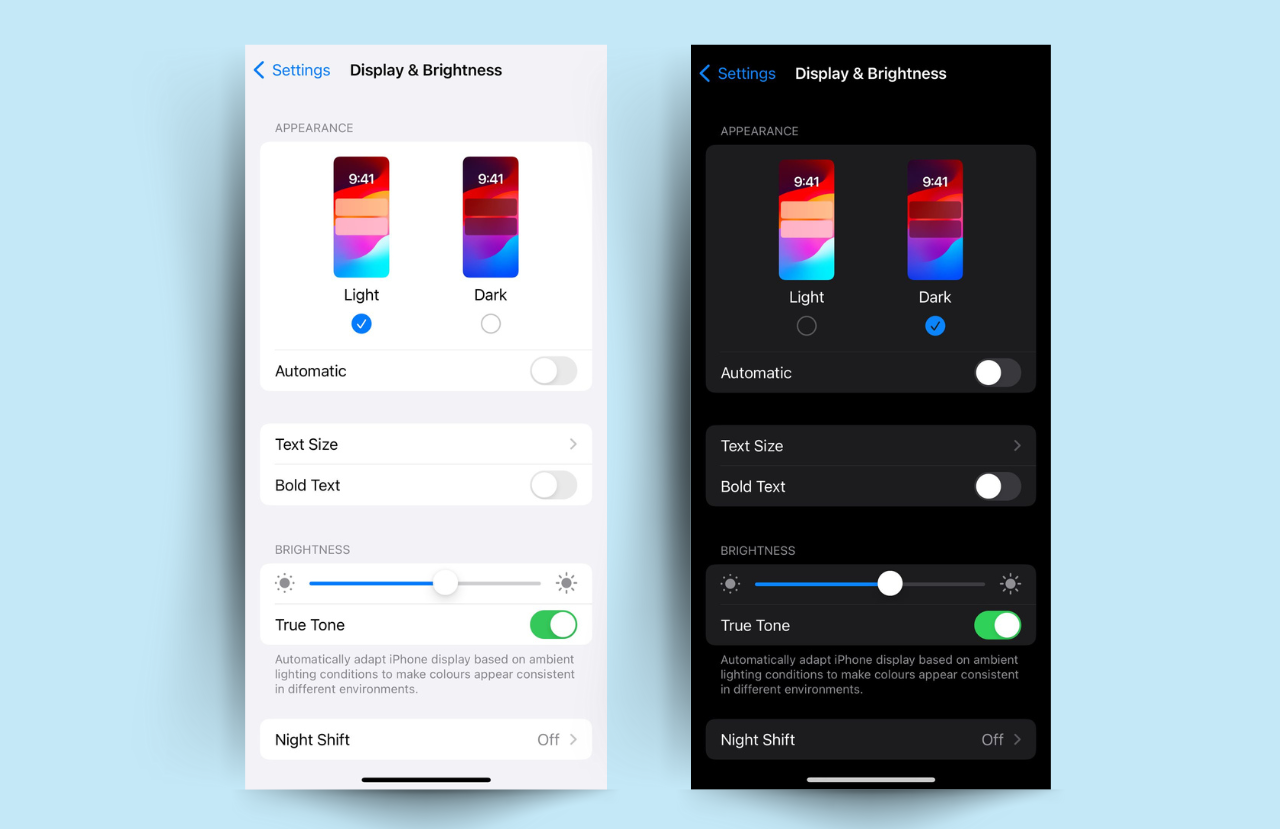Blue light blocking glasses are created to offset the adverse effects of too much exposure to blue light, particularly when it comes from artificial sources.
Blue light blocking glasses can certainly be worth it if you use legitimate, certified products that prevent blue light from stopping melanin production. If the glasses fit the right criteria and are backed by science, blue light blocking glasses can make a significant difference for your health and sleeping habits. However, consumers should avoid products that make lofty promises with no scientific backing.
Just because blue light blocking glasses can produce results doesn’t mean that you can purchase any pair off of the market and expect those results to blow you away. Another factor to consider is that some blue light blocking glasses are ideal for daytime, and others for nighttime.
The key is finding the perfect, scientifically backed glasses for your needs and your lifestyle.
If you have a good understanding of what blue light is, how it works, and how it impacts your eyes, it can help you determine which glasses might work best for you. Being equipped with enough information can also help you steer clear of lesser products that will likely fail to deliver the results you expect.
How Does Blue Light Affect Your Eyes?
It has been recently discovered that blue light is an important player when it comes to regulating energy throughout the day. Exposure to blue light leads to lower levels of melatonin, a naturally-occurring molecule in the brain that promotes sleep. Blue light can also lead to a series of other side effects such as headaches, digital eye strain, and even eye degeneration.

For years, researchers hypothesized that blue light was especially harmful to the eyes due to its higher levels of energy and short, strong wavelengths.
While it is true that the shape of blue light waves is uniquely impactful on the human brain, more recent studies suggest that the problem isn’t necessarily that blue light is more aggressive on the eyes than other types of light, but instead that we are exposed to blue light at too close of proximity and for too many hours per day.
Blue light is not an artificially created phenomenon. It surrounds us in the natural world, and it’s a vital part of the human body’s ability to maintain an inner circadian rhythm (like an internal clock).
Unsurprisingly, as society has shifted away from a purely natural way of rising and slumbering, the use of artificial lights has become incredibly commonplace. But our brains and eyes can’t tell the difference between naturally occurring daytime blue light and artificial blue light.
The results of this improper and excessive exposure to blue light are often eye strain, headaches, and insomnia, among other examples.
Blue Light Melatonin Suppression
Blue light exposure causes the body to slow or halt the production of melatonin, a hormone that plays a significant part in regulating an individual’s sleep-wake cycle.
This makes sense when you consider that natural blue light, which comes from the sun, would be most prominent during the day and dissipate during the night. Our bodies would use blue light as a sort of guide for when to produce melatonin, which would have been advantageous for our ancestors.
For modern humans, though, it means that other sources of blue light, namely our technological devices, can keep us feeling alert even when we don’t want to.

Spending hours and hours in front of a computer and even more on a phone, television, tablet, etc., can mean that the brain doesn’t get a chance to prepare itself for sleep.
If the time of day when your head hits the pillow is the first time you’ve really gotten a break from blue light, it’s difficult and complex for your mind to be able to shut itself off in time for you to get the amount of sleep you expect.
Blue Light in Nature
As mentioned, the blue light that we experience in nature comes from the source of all natural light: the sun.

It’s easy to overlook this fact; after all, the sun seems to visibly emit only warm-colored or neutral light. But it’s key to remember that visible light exists on a spectrum (with blue on one end and red on the other), and the reason we see things as a certain color is because of the type of colored light they reflect, not because only that color light touches the object.
Interestingly, studies show that using the discovery that natural light, especially blue light, promotes wakefulness and energy to our advantage may be possible. When exposed to this sort of light early in the morning, individuals might experience boosted cognitive performance, improved mood, and often report feeling more awake and ready for the day.
How Do Blue Light Glasses Work?
To offset the potential negative effects of exposure to blue light, blue light blocking glasses take on a colored tint that makes it harder or impossible for certain wavelengths to pass through them to the eye

Glasses that block blue light are often amber, yellow, or red in color. These special pigmented lenses do a better job of blocking out more blue light because they absorb more of the bad and let in only the good.
Blue light blocking glasses are backed up by science, too, particularly in their ability to block enough light to ensure that regular melatonin production occurs.
Can I Wear Blue Light Glasses All the Time?
You can wear blue light blocking glasses at all times if you’d like, but consider that during different parts of the day, you may have different needs. For example, it can be useful for you to encounter exposure to blue light in the morning, because it helps your brain with wakefulness.
For that reason, we recommend using blue light blocking glasses that are designed for different times of day.
Day-Time Blue Light Blocking Glasses
Clear-Lens Screentime Glasses
During the day, blue light from the sun can help you feel awake and ready to be productive. But if we are also exposed to large amounts of blue light from screens like computers and phones, that can still lead to adverse effects like headaches, eye strain, and eye damage.
That is why, during the day, and specifically for people who work in offices in front of a computer, there are clear-lens screentime glasses that let in enough of the “good” blue light while blocking out negative or excessive blue light.
The blue light emitted by screens is at exactly in the 455nm range, which is why our clear-lens screentime glasses for day time block out all blue light in this range. So you get the benefit of sunlight, without damaging your eyes from the screens.
Yellow-Lens DayMax Glasses
These glasses are another step up from the clear-lens blue light blocking glasses, which is why we recommend them for people who are sensitive to light, gamers, or who suffer from migraines or eye pain.
Because these are daytime glasses, they still allow sunlight in, but they also block 100% of damaging blue light emitted from screens.
Nighttime Blue Light Blocking Glasses
Amber-Lens Sundown Glasses
These glasses for the nighttime block 100% of blue light in the evening, making them more heavy-duty than the daytime glasses. They will effectively allow your body to produce melatonin, aiding you in feeling sleepy and going to bed at a reasonable time.
Because the lenses are amber, you will still have some color perception and you can still carry out all your nighttime habits and activities, while also protecting your eyes, brain, and mood.
Red-Lens Nightfall Glasses
These are the most premium, high-quality blue light blocking glasses available on the market. They not only block out 100% of blue light, but they also block out green-light, which is next to blue-light on the color spectrum and also slows down melatonin production.
With these glasses on, you are sure to enjoy a restful evening void of any harmful light strain. The nightfall glasses are ideal for people who suffer from insomnia, migraines, and more.
Do Blue Light Glasses Really Work?
Blue light blocking glasses can indeed help limit the melatonin suppression that’s caused directly by blue light. They can also help lower the chances of discomfort, strain, or pain by lessening the amount of bright light that enters the eye in general.
Remember, however, that not all blue light glasses are created equal. Some are medical equipment, backed by science. If a company cannot explain the scientific basis for their glasses, then they may not be truly offering the benefits they promise.
While these glasses may or may not block out all blue light entirely (depending on which pair you purchase), they do have the potential to seriously change the way you experience the day and night, especially if you tend to experience insomnia.
Blue light blocking glasses for sleep and for the day have tons of anecdotal evidence to back them up, too; all sorts of individuals worldwide find some sort of benefit from their glasses, whether it be related to sleep or not.
Some criticism of these glasses surrounds the fact that they can’t always block out enough light to make a real difference. Likewise, many are skeptical about whether it’s necessary to block out blue light specifically; after all, blue light isn’t the only type of light that can cause eye strain or discomfort. But there are glasses for the nighttime that block out 100% of blue light and also portions of green light. There are also glasses for the day time that block blue light from screens while also allowing in beneficial blue light from the morning sunshine.
Even if you choose to only use them at night, when exposure to artificial blue light is most common and problematic, you’re likely to notice a difference in your ability to get quality sleep.
Best Blue Light Blocking Glasses: Block Blue Light
Not all blue light blocking glasses are offering the same, proven benefits. Having a thorough understanding of just what blue light is and how it works makes it clear that the most effective, successful glasses will be those that work to eliminate appropriate levels of light based on the time of day.
That’s where BlockBlueLight’s glasses come into play.
Specially designed to suit the needs of the eye at various points of the day, these glasses beat out others on the market, many of which aren’t created to properly filter light or do so to the right extent.
Whether you’re looking for blue light blocking glasses for day or night (or anywhere in between), BlockBlueLight has something for you.
Our nighttime lenses take on a strong amber tint that’s sure to block out just about any blue light you encounter. In fact, our darkest lenses successfully block out green light, too, further ensuring your eyes are protected from potential irritation all evening long. Our daytime glasses effectively block out blue light from screens and any excessive amounts of blue light, while allowing some levels of blue light, like natural sources, to pass through.
If you’re still asking yourself if blue light blocking glasses are worth it, save yourself some trouble: for those experiencing insomnia, headaches, eye strain and blurriness, and other similar struggles, you’ll probably be surprised by the difference that Block Blue Light can make.
Even though blue light isn’t necessarily an enemy, it should be treated like the intense and powerful force that it is, and no one understands that better than Block Blue Light.
Takeaway: Blocking Blue Light Is Worth It
For the average, modern worker, blue light isn’t just some occasional annoyance. It’s a chronic, often unavoidable exposure, and stepping away from it can be truly impossible to do in many cases.
The unfortunate result of this reality, for many people, is an inability to settle down for bed at night. The results of a lack of sleep speak for themselves: irritability, increased stress, confusion, drowsiness, poor mood, and other related effects of poor sleep can make it challenging to perform at your best.
What often follows periods of insomnia is more screen time, making it even harder to break out of the cycle of feeling too awake when you want to sleep and too tired when you want to be functional.
So, why let something that’s outside of your control dictate your life? Blue light can be beneficial in many ways, but too much of even a good thing is almost always a problem.
Try out blue light blocking glasses for yourself; only you know what works best for your needs, and a little trial and error may be all it takes to find a solution to what otherwise may be a lifelong struggle.
Frequently Asked Questions (FAQs)
Below, we’ve compiled some common questions and answers related to blue light blocking glasses. For more information on how blue light can impact eye health and sleep, be sure to visit any of our numerous resources on the subject.
Do blue light glasses work for sleep?
Blue light glasses can certainly work to help an individual sleep better and more consistently at night.
The concept of blue light blocking glasses is perhaps most important when it comes to blue light and sleep. When they’re designed properly, these glasses can limit or totally cut off the amount of blue light to which the eyes are exposed.
Because blue light is directly connected to melatonin production and wakefulness, limiting how much of it you encounter during the day or before bed can help set you up for a restful night.
Are blue light glasses bad for your eyes?
No, blue light glasses aren’t known to cause any harm to the eye. These glasses work to block out light based on the design of their lenses and thus don’t interact with the eyes or brain in any unusual ways.
How do you know if blue light glasses work or not?
If you notice a decrease in the blue light–related symptoms you’ve been experiencing (migraines, eye strain, insomnia, etc.) after using the glasses, you can safely assume that they’re doing their job as intended.
Likewise, a lack of change can indicate that the glasses you have aren’t doing enough. Switching to lenses that have a stronger tint or more effectively limit how much blue light passes through may yield better results.
Do blue light glasses work for headaches?
Blue light and headaches, go hand-in-hand for many people, largely because the blue light in question comes from bright computer light or phone screens.
Blue light blocking glasses may help limit this discomfort by lowering how much blue light you take in throughout the day. However, the best way to totally halt headaches resulting from too much screen time is to lessen how often you use electronic devices.









